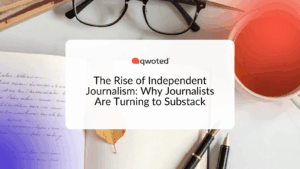Event sponsorship is a great way to connect your small business with other successful brands, as it allows you to harness the power of collective credibility. If you want to grow fast and reach a quality audience, sponsoring events is a worthwhile strategy to explore. It serves as a beneficial learning experience for new and veteran business owners, and can often be an expensive outlay. Consider these elements when determining if event sponsorship is worth it for your business.

Sponsorship can sometimes involve products or services, but in most cases it focuses on funding. In exchange, you can increase exposure of your business, and consequently, the chance to connect with new customers. Quality matters, so choose events with a track record of attracting good press and customers. Just like any other transaction, sponsorship roles can be negotiable. Before you sign any contracts, make sure the agreement gives you the level of exposure you want.
1. Brand Visibility
The bigger the event, the more press and social media mentions you get before, during, and after the event day. Some sponsorship include featured ads, signs, or radio spots that boost brand recognition. Working featured ads and signage that boosts your brand recognition are things to keep in mind as well. If you include promotional giveaways in your strategy, a huge number of people will be toting your branded swag.
2. Consumer Perception
Public perception can make or break your business. Customers form positive opinions when businesses are tied to high-profile events, as it connects you with being reputable and reliable. In fact, research from the Event Marketing Institute found that 74 percent of consumers are more likely to buy products after exposure to a branded event marketing experience. Use the clout you earn as a sponsor to grow your reputation in your community.
3. Conduct Targeted Marketing
The audience of an event should be one of the biggest determining factors of whether you decide to sponsor. An event hosted for a niche audience or member organizations that are looking for relevant product solutions is a great way to find qualified leads, and the spend becomes easier to justify. On the other hand, the bigger the event, the further reach you’ll have before and throughout the event day. Think about what works best for your bandwidth and budget.
4. Foster Business Relationships
Are you in the market for new partnerships or supplier relationships? Small business owners are busy folks, so most are happy to collaborate and share resources. Events are great places to find non-competing businesses you can collaborate with in the future. Find out which businesses are participating, and prepare pitches to introduce yourself to key players.
5. Efficient Lead Generation and Sales
Think about the amount of time you normally spend hunting for 10 qualified leads. How about 20, 50, or 100? Event holders typically provide data about attendees or attendance rates in advance. Do your research and plan a strategy to optimize your time. Along with obtaining leads, consumer events allow you to rack up sales on the spot. Bigger events often offer the chance to pay more for category exclusivity. If sales are your top priority, choose an event with high foot traffic and few direct competitors Many companies make the bulk of their purchases at trade shows, and you can quickly earn their respect as a sponsor.
6. Community Goodwill
Not only do events bring you a host of compatible customers, but they also show the human side of your business. Forming an emotional connection is half the battle of building brand loyalty. By attending in person, you can learn about customers, promote your products, and build a mailing list. Customers love brands that care about spreading positive messages and helping the community. Linking your business to a worthy cause can draw lasting support and loyalty.
7. Boost Your Social Strategy
Events provide fresh material to expand your content and social media strategies. By connecting with the event holder on social media, you can find relevant audiences to target. Popular events get a lot of engagement, which you can use to create content themes and engaging content while promoting your hashtags. User-generated content has a greater impact on customers, so make it easy for people to share photos and tag your business on social media.
8. Return on Investment
Whether you plan to sell or not, events can help you reach a variety of goals. You don’t necessarily need to make a huge profit on event day to be successful, as long as you have a long-term way to leverage your investment. To make the most of your event sponsorship, decide what you want to achieve before you go. Come up with a metric to measure your efforts, so you know if an event is worth attending again. In ESP’s survey, 55 percent of sponsors said their return on investment increased from 2016 to 2017.
The benefits of event sponsorship are endless if you put in the effort to forge connections. Take advantage of every resource the event holder offers to help businesses, especially as a new participant.
Check out some more of our tips and helpful information for small business owners.


